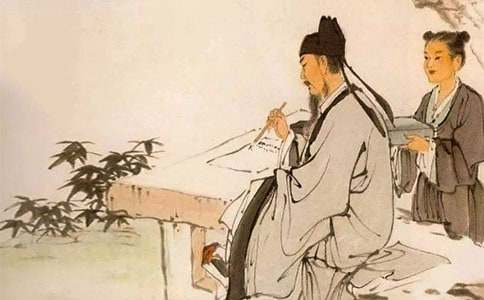- 相关推荐
四川-杜甫草堂英文导游辞
Du Fu(712~770)Thatched Cottage used to be the former hone of Du Fu, one of the greatest poets in the Tang Dynasty. Located in the western suburbs of Chengdu, the spot is marked by a stream, ancient style architecture, pavilion pagodas and age -old trees.
The cottage consists of six important parts, They are the Front Gate, the Lobby, the Hall of poem History, the Water Pavilion, the Gongbu Shrine and the Thatched Cottage.
At the time of the Tang Dynasty, Du Fu's poetry first came to be recognized. Readers of many different periods have considered Du Fu to be the greatest poet of the Chinese tradition. Such general agreement can partially be explained by the immense variety of his work, which holds up quite well to different tastes and historical changes in fashion. Like Shakespeare in English tradition, Du Fu's poetry came to be so deeply bound up with the constitution of literary value that generation after generation of poets and critics rediscovered themselves and their interests in some aspect of the poet'
Chinese critics from the Song Dynasty referred to Du Fu as the"poet-historian". Both before and after the An Lushan Revolt, Du Fu witnessed a typical political and social situation; the common people still lived in poverty while the emperor and his top officials enjoyed a foolishly luxurious life. He composed many poems such as "Song of the War Chariots", "Three Officials",and "Three Departures"。His poems expressed his dissatisfaction with the government and his great pity for the common people. Du Fu used his poems to comment on current events and historical images. Du Fu became the historian by creating his responses to particular situations.
Du Fu was talented. When he was young, he wanted to get a good job in the government. Unfortunately Du Fu was refused several times. He was in his fifties when he began to serve as a minor official in Changan (Xi'an). Gongbu was his official title and probably he was in charge of the lical industry.
Du Fu was not a skilled survivor in government politics. He was dismissed in the form of a transfer to the post of personnel administrator in Huazhou and so left Changan. Du Fu soon gave up this minor post in disgust and set off with his family to Qinzhou in the Northwest. After a short stay he moved on again and in 759 he arrived in Chengdu. He set up a modest cottage with some money he borrowed from his friend who served as a local governor. In the cottage he had a simple and peaceful life for three years, writing about 240porms. Mostly inspired by the cottage, the stream nearby and the scenery in Chengdu. These poems give the impression that he was happier in Chengdu than any other time in his life. The poems of this period sound relaxed and happy. Here are some of them.
In Chengdu the flutes and the strings
You hear them so loud even in the daytime
The melody fades in the river wind
And half in the towering clouds above us
Oh it should never be played here
本作文共3页,当前在第1页 1 2 3
【四川-杜甫草堂英文导游辞】相关文章:
四川杜甫草堂导游词02-25
四川杜甫草堂的导游词01-03
介绍四川杜甫草堂的导游词范文02-18
杜甫草堂导游词08-24
杜甫草堂导游词01-02
杜甫草堂的导游词01-05
杜甫草堂导游词01-28
优秀杜甫草堂导游词12-17
杜甫草堂导游词(精华)07-22